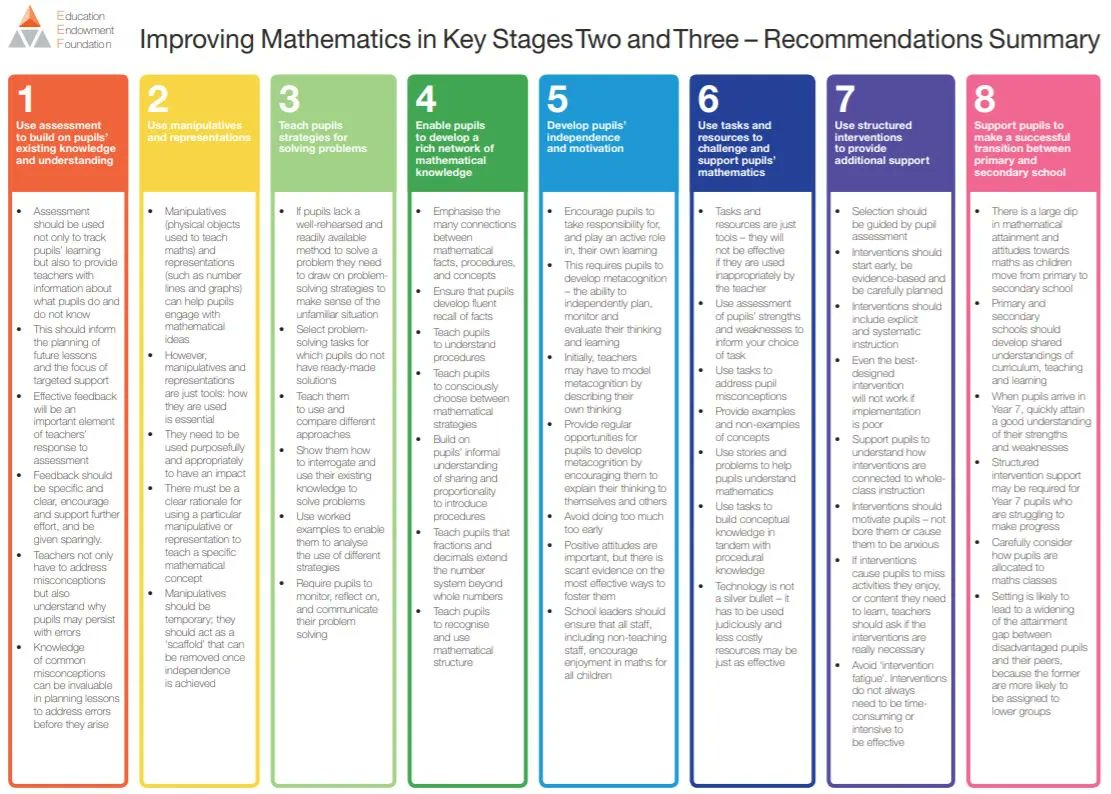Year 5-8 Continuity - 2022/23 - Telford
Friday 2 December, Tuesday 17 January, Friday 3 March, Tuesday 28 March, Friday 30 June Telford
Workshop Dates:-
Friday 2nd December - 0915-1515 at The Brookside Central Community Centre, Brookside, Telford, TF3 1LP - Reasoning with Fractions
Tuesday 17th January - 1315-1530 - Online - EAL Focus
Friday 3rd March - 0915-1515 in Telford - Algebraic Thinking and Reasoning
Tuesday 28th March - 1315-1530 - Online - EAL Focus
Friday 30th June - 0915-1515 in Telford - Multiplicative Reasoning
In 2022-23, our Years 5-8 Work Groups focus on oracy, including EAL in Maths. We will combine aspects of our successful and unique EAL and Maths Work Group, with verbal reasoning in response to expertly crafted Checkpoints, Multiplicative Reasoning and Algebraic Thinking activities.
Evidence of a dip in progression as pupils move from KS2 to KS3 is widely reported and accepted. Teacher knowledge of curriculum and pedagogy and a focus on academic transition, as well as pastoral, have been identified in the research by Ofsted and EEF as key factors in improving outcomes for pupils.
The Work Groups promote teaching for mastery approaches across the KS2-3 boundary to ensure consistency in the pupil experience, thereby meeting the Primary schools and Secondary schools strategic goals of establishing teaching for mastery approaches and encouraging schools in engaging with teaching for mastery support. The Work Groups also meet the Primary strategic goal of ensuring that pupils ‘are well prepared for the secondary maths curriculum’.
Participants' feedback from last year was completely positive, including:
- 'Collaborating and discussing mathematics with colleagues from different phases, including in breakout rooms, has been great.'
- 'It has really made me think about my practice and how I can use vocabulary and the resources available with the NCETM.'
- 'I have become more aware of the importance of langauge and asking the right questions to extend pupils.'
- 'It has made me thing more deeply about the smaller steps of Teaching for Mastery.'
- 'The support offered by the Work Group leaders and other teachers has been superb.'

Who will be leading the group?
Graham Charles
Graham is an accredited NCETM PD lead and is the strategic leader for Salop, Herefordshire and Wolverhampton (SHaW) Maths Hub. He has been working collaboratively with KS2 and KS3 project leaders to develop this transition project, with more than 3000 teachers having taken part nationally.
Jo Makin-Isherwood
Jo has been Primary Teaching for Mastery Lead for CODE Maths Hub, progressing as an accredited NCETM PD Lead and Primary Specialist. . She worked with Early Years, KS1 and KS2 classes, including mixed age classes, before becoming Maths Subject lead and Senior Leader, including extensive SEND experience.
Qamar Maqsood - EAL and Multicultural Development Team Leader for Telford Council, having previously being Secondary Head of Maths.
Sandeep Vashisht - Primary Maths Lead for Wolverhampton Council and Accredited NCETM PD Lead, having been a Primary Specialist for SHaW Maths Hub.
Who is it for?
Linked families of schools: primary, secondary, middle schools, and all-through schools should participate in this Work Group. For example, this could be secondary schools and their associated (feeder) primary schools or family groups of schools from within a MAT. Having a mix of schools with KS2 and KS3 pupils is essential to the success of the Work Group.
Lead participants should be teachers of Years 5-8.
As a school development programme, the participating teachers should be supported by their schools with structures and opportunities be able to disseminate best practice from professional collaboration.
What are the intended outcomes?
Pupil outcomes
- Pupils in KS2 and KS3 demonstrate a positive attitude to maths
- KS3 pupils show improved understanding of the chosen topics, based on strong connection with KS2 foundations.
Whole school/departmental policies and approaches
Participants work with teachers in their schools to ensure that:
- Collaboration between primary and secondary colleagues on issues of curriculum and pedagogy is a normal part of the schools’ transition practice (and policy)
- Curriculum planning at KS3 is adjusted to ensure that is builds on the learning that pupils bring with them from KS2
- Curriculum planning at KS2 identifies the priority learning which underpins progression, preparing them for the KS3 curriculum.
Practice development
- Participants make common use of approaches, representations and language across phases
- Lesson design and pedagogy demonstrate a secure knowledge of curriculum continuity
Professional learning
- Work Group Leads, participants, and the teachers in their schools, have a deeper knowledge and understanding of (one or more specific areas of) the curriculum across KS2 and KS3, including the expectations of pupils at the end of each Key Stage
- Work Group Leads, participants, and the teachers in their schools, have a deeper understanding of the approaches (in one or more specific areas) which will support pupils as they move from KS2 to KS3, including the importance of consistency of language and representations.
What is the cost?
Free
Book
